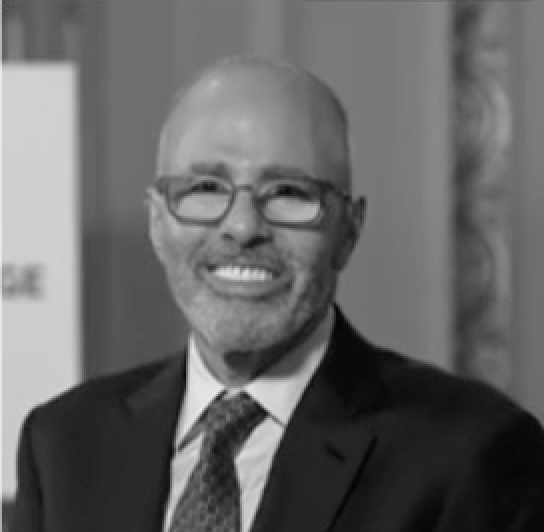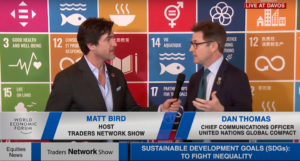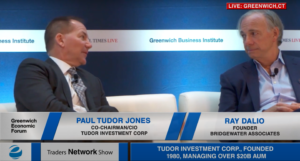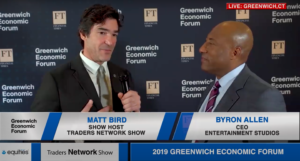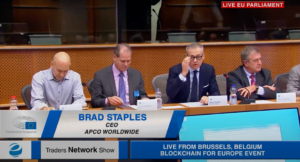Carl Camden Founder of iPSE-U.S. Exclusive Interview at Converge2Xcelerate | Traders Network Show – Boston, MA
Contributed by: Show Editorial Team
Carl Camden Founder/President of iPSE-U.S. at Converge2Xcelerate Conference (Boston, MA)
HIGHLIGHTS
- iPSE-U.S. is the first not-for-profit to provide access to benefits, advocacy, & education to the independent workforce
- Independent workers contribute ~$1.56 trillion to US economy
- Carl is the former President/CEO of Kelly Services & a recognized thought leader on talent management
FULL COVERAGE
INTERVIEW TRANSCRIPTS: Carl Camden, Founder/President of iPSE-U.S.
Ed Kim – Host, Traders Network Show: 00:00
Welcome back. We’re very pleased to have with us Carl Camden today, a founder and president of iPSE-U.S.. Carl’s dedicated more than 25 years of his life to advocating for the independent workforce. He was president and CEO of Kelly Services, a fortune 500 workforce solutions firm for 22 years. Welcome Carl. Thank you for joining us. Tell us about the Genesis of iPSE-U.S.
Carl Camden – Founder/President, iPSE-U.S.: 00:25
When I was working at Kelly services and we began implementing global talent supply chains, it soon became very clear that only in the United States that independent workers face discrimination and access to benefits and access to workplace safety and so on, and the rest of the world, they believe that access to benefits and workplace protection is a fundamental right of citizenship, not a fundamental tie to employment. And so they provide access to benefits because you’re a citizen. They pay for it through transaction taxes. And everybody who lives in that country has access to those benefits.
Ed Kim – Host, Traders Network Show: 01:06
That’s fascinating. Now you have a, your background is in linguistics as I understand. We’ve talked about this before about the, the nomenclature of the independent worker which is which is the preferred term, certainly versus the connotations that independent contractor has. Can you talk to me about how that’s transitioned?
Carl Camden – Founder/President, iPSE-U.S.: 01:29
Yeah. We went through a long period of time where being an employee was a very high status thing in this country. And we allowed phrases to be seated like, well, he’s just an independent contractor, or they’re just a 1099 in a dismissive way. And then companies began to treat employees dramatically different than independent workers. There are still companies today that don’t even bother to snowplow the parking lot, which is the furthest away from the building where people are going to work for the independent workers. So they have to park as far away as possible and often don’t even get, you know, the parking lot.
Ed Kim – Host, Traders Network Show: 02:10
Right. And in terms of their contributions to the economy, you mentioned that they’re a third of the workforce. What does that translate into?
Carl Camden – Founder/President, iPSE-U.S.: 02:18
Yeah. Nearly $2 trillion of the U S GDP every year is produced by independent workers. They pay a tremendous amount of taxes. They support the government, they support the economy, but have no recognition and no official participation with the department of labor or anybody else to support their endeavors.
Ed Kim – Host, Traders Network Show: 02:30
The modern version of taxation without representation.
Carl Camden – Founder/President, iPSE-U.S.: 02:38
Absolutely. At least in this case it’s regulation without representation.
Ed Kim – Host, Traders Network Show: 02:45
So are the, are the state governments the problem is the federal government the problem where is those is the soft spot for you.
Carl Camden – Founder/President, iPSE-U.S.: 02:54
The problem comes about because we decided that the uniquely American of tying benefits the jobs was a great thing and we’ve been very reluctant to give it up. And then the unions adopted it as a way when there were wage and price controls as a way to increase compensation to employees by making these types of benefits available. So it’s become custom, but it only survives now because in families you can take care of your children under a benefit plan until they’re 27. Spouses, even if they have other income can, can stay on the benefits. So we’ve built this gerrymandered house of cards, which is now beginning to collapse around itself.
Ed Kim – Host, Traders Network Show: 03:36
So, so if I’m a, if I’m an independent worker, I’ve gotten an election in this country coming up next year, does it matter to me which side I vote for?
Carl Camden – Founder/President, iPSE-U.S.: 03:47
It doesn’t matter which side you vote for, but it does matter who you vote for. In this particular case, there were a strong democratic support for our endeavors because they see us providing a very needed social safety net for independent workers. The Republican party sees a very strong need for this because they believe that will boost entrepreneurship and small business creation in this country. So we don’t have any problem finding advocates inside both parties, but we do find those who are tied to the old world of work haven’t understood the new dynamics. And it’s very important that they don’t find a place on the Congress or the Senate regardless of which party they’re in.
Ed Kim – Host, Traders Network Show: 04:27
Well, it’s, you should be congratulated for finding an issue that they can be bipartisan about. So this sounds on some level, like the governments have engaged in a proactive discriminatory effort. This isn’t just laissez Faire. Let them be. This sounds like active non legislative efforts.
Carl Camden – Founder/President, iPSE-U.S.: 04:56
I view it as very discriminatory. I view it as oppressive. If I was being a cynic, I would note that the government finds it easier to deal with tax collection when all the companies are the outsource tax collector. Whereas with independent workers you have to deal with, since we don’t have transaction taxes, you have to deal with them one at a one at a time. Right. And I think that gives them some incentive. But again, they grew up with an ethos that their parents taught them. Just like my parents tried to teach me, grow up, get a job, get a good job, and then I would say to my dad, what’s a good job? Well, a good job is that you can work at for 30 to 40 years and they will take care of you. When you say that now to college students, they burst out laughing. There is no belief that there’s a good job that lasts 30 to 40 years and then where the company is going to take care of you.
Ed Kim – Host, Traders Network Show: 05:50
That makes a lot of sense. Carl Camden founder and president of iPSE-U.S. thank you so much for your time.
For Link to Original Article, Click Here
All rights reserved to the Traders Network Show. No part of this publication may be reproduced, distributed, or transmitted in any form or by any mean including; photocopying, recording, or other electronic or mechanical methods, without prior written permission of the publisher, except in the case of brief quotations embodied in critical reviews and certain other noncommercial uses permitted by copyright law. For permission requests, write to the publisher addressed “Attention: Permissions Coordinator”


